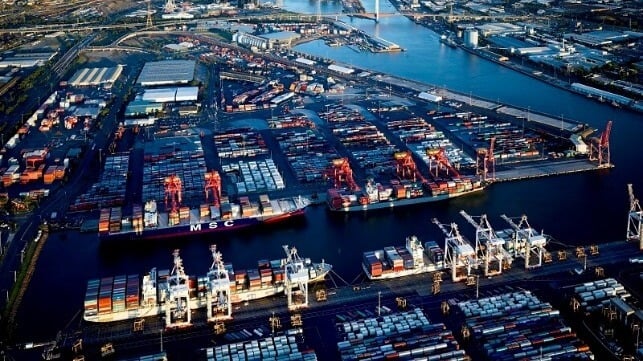Australian Government Budgets Pilot Program for Three Merchant Ships

Contained within Australia’s massive $764.6 billion (US$506 billion) decade-long defense budget for 2024-2025 is this first allocation for the creation of the Australian Strategic Fleet. One of the promises made by now Prime Minister Antony Albanese was the revitalization of the domestic merchant fleet to support Australian commence and serve defense needs.
The newly-elected government launched a taskforce in October 2022 which submitted its final report in June 2023 providing a roadmap on how to establish the strategic fleet, and how to overcome any key challenges which may arise in the maritime industry. The maritime strategic fleet was born out of the government’s position that it needed to improve Australia’s resilience and maritime capability. The fleet will be made up of up to 12 privately owned and commercially operated Australian-flagged and crewed vessels. These vessels will be available for requisition by the government in times of need.
The 2024-2025 budget increases overall defense spending over the decade to create what Albanese terms a “more capable and self-reliant” Australia. The plan includes $11.1 billion (US$7.35 billion) over the decade to increase the size and lethal capability of the surface combatant fleet and an additional $1 billion (US$660 million) for autonomous systems.
“We’re increasing the defense budget by over $50 billion (US$33 billion) over the course of the next decade,” highlights Assistant Minister for Defence, Matt Thistlethwaite. He said that it would be record spending to ensure Australia has the capability to defend the nation.
The budget includes $21.7 million (US$14 million) over five years to support the establishment of the strategic fleet. It calls for an initial pilot program that would add three new merchant ships to Australia’s domestic fleet. The government expects to begin taking applications for these vessels later this year.
The Australian Maritime Union and others have been strongly in favor of the program highlighting the decline in the domestic fleet. According to the International Transport Workers’ Federation, as of December 2022, there were only 11 Australian-flagged and crewed vessels over 2,000 dwt holding licenses for the coastal trade. They compare that to the more than 2,300 voyages operated by 504 foreign-flagged vessels in Australia during 2021.
The ITF issued a statement welcoming the government’s budget with the funding for the merchant vessels.

that matters most
Get the latest maritime news delivered to your inbox daily.
“In many countries, domestically-owned and operated fleets are able to supplement supply chain capacity and move cargoes via national-flag vessels. This strategic capacity allows the industry to use vessels to move cargoes to smaller ports located further inland or has supplemented the capacity to move goods inland by rail and road, to reach their final destinations,” said ITF General Secretary Stephen Cotton.
The COVID-19 pandemic highlighted what the Australian government called the country’s vulnerabilities and supply chain challenges. The ITF says shipping is critical to Australia’s social and economic well-being highlighting that shipping moves 99 percent of Australia’s goods traded by volume, and around 79 percent by value.
